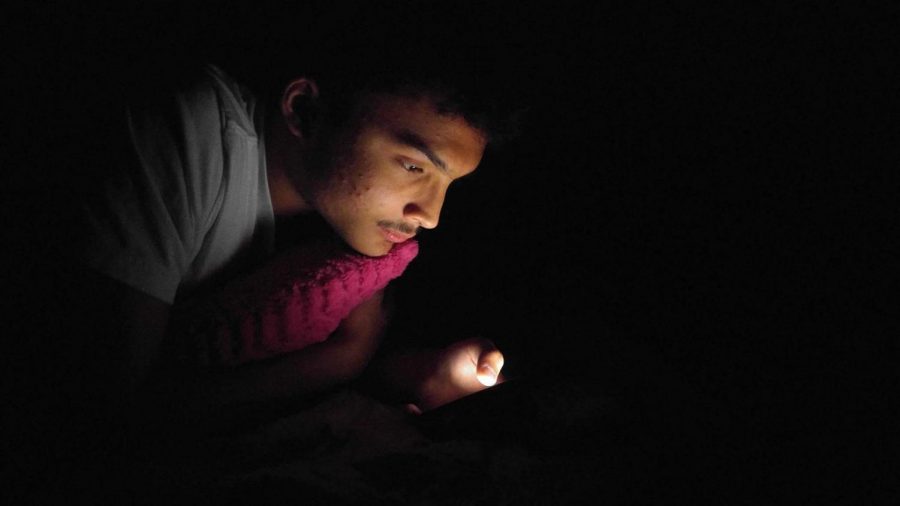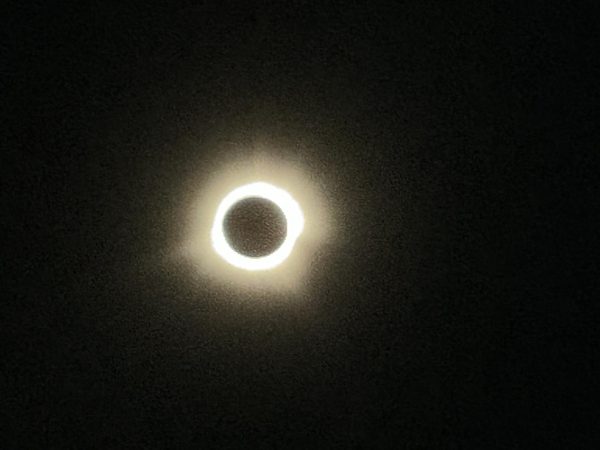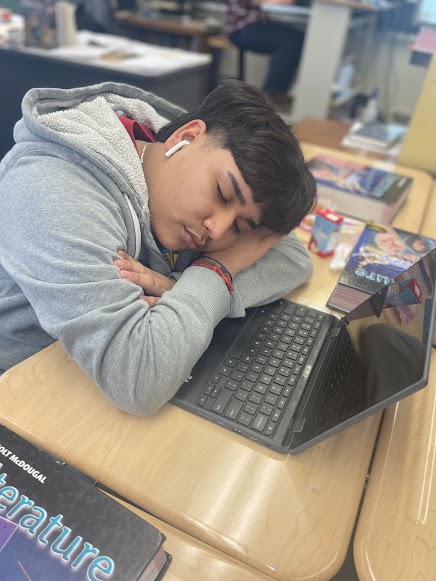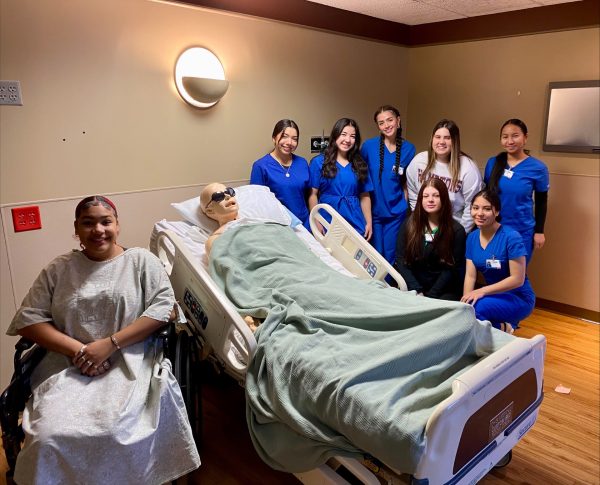Cellphone use disrupts sleep wellness
This story received an Honorable Mention Award, Kettle Moraine Press Association, October 2018
November 15, 2017
Before calling it a night and going to bed, Allen Oddo ends his day with some long-awaited relaxation time on a screen. He collapses on his couch, and takes out his cellphone. On his phone, he checks his social media, watches a few videos and listens to his music. Nightly routines similar to Oddo’s could be the reason people wake up so tired in the morning.
“As a high school student, I tend to procrastinate due to my phone,” said Oddo, senior. “My nightly routine consists of completing my homework, brushing my teeth, and using my phone until I fall asleep.”
During a nightly slumber, the human body goes through states of sleep known as sleep cycles. The first state in a sleep cycle is light sleep, followed by deep sleep, and then a dream state referred to as REM-sleep. A full cycle lasts around ninety minutes, and is usually repeated several times throughout the night.
“I use my smartphone to listen to music and to keep in touch with my friends,” said Victoria Villela, junior. “I probably spend about four hours a day total on my phone.”
According to the Division of Sleep Medicine at Harvard Medical School, the two main types of sleep are rapid-eye-movement (REM) sleep and non-rapid-eye-movement (NREM) sleep (healthysleep.med.harvard.edu). Sleep patterns can be affected by many factors, one of which is blue light. Blue light is emitted from smart phones, and produces a higher amount of energy than other light sources. Exposing yourself to blue light before bed also affects the levels of melatonin that your body produces.
“In terms of light and our brains, there is a spectrum of wavelengths that impacts the human circadian system,” said David Earnest, as reported by Texas A&M Research (research.tamu.edu). “Blue light is the most sensitive side of the spectrum.”
Technology usage before sleeping is not the only factor to not getting enough sleep, but it is a major component of it. Although it may be hard to break the habit, not staring into a screen before bed may just help you wake up more refreshed than ever before.
“I have noticed a change in my sleeping patterns since I’ve gotten my phone,” said Oddo. “I think there is something to be said about the correlation between your screen and your sleep.”












